On June 6, 1982, ten PKK militants fell while fighting shoulder on shoulder with the Palestinian resistance in Lebanon in the war against the Israeli invasion. They fell as internationalists.
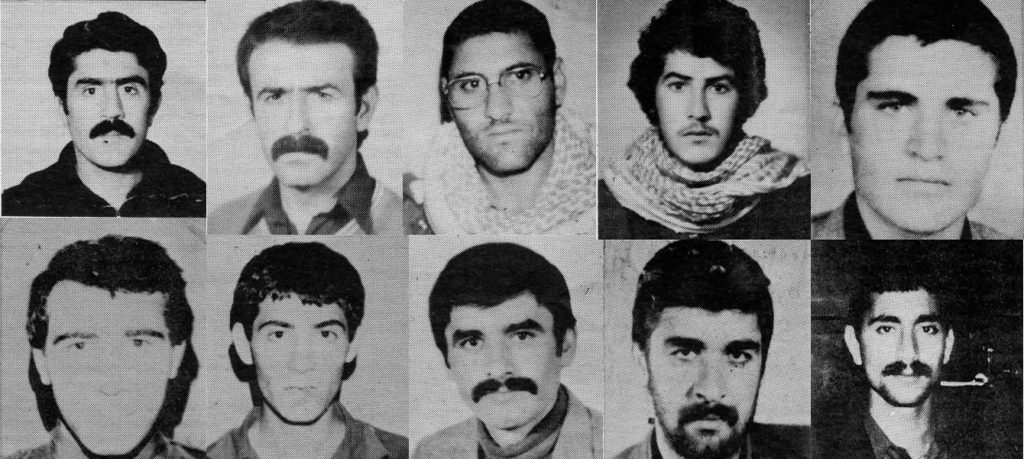
Today, on the occasion of the anniversary, we publish stories of these ten Kurdish partisans in resistance and commemoration of the fallen Internationalists of the PKK. Their story “Heroes of the Castle Arnun” was first published in the magazine Serxwebun, in Kurdish and Turkish and in the German solidarity magazine “Kurdistan Report” in August 1984.
Unfortunately their story is not complete, just like the many other internationalists from all over the world who participated in the Palestinian resistance, whose stories have not yet been told. We only want to mention Ingrid Siepmann, a member of the Movement 2nd June, which fell within the ranks of a Palestinian women’s brigade in the resistance against the Israeli invasion in 1982.
Despite it being incomplete, the story of the ten PKK-militants is of such value for the history of the Kurdish liberation struggle and makes clear the internationalist character of the PKK in a vivid way and whiteness, that we nevertheless publish this article with great joy and in memory of the martyrs.
“Solidarity is the tenderness of the people“! (Che Guevara)
In Lebanon
„The colorful spring of 1982 added new vitality to the charm of nature. Nature appeared like a young bride dressing up for humans. And in those days the red-hot sun began slowly to yellow the colorful wedding dress.
The sky was fresh and quiet. The waves of the Mediterranean swoosh even when they beat gently against the beach; as they snap back, they carry countless grains of sand with them into the depths of the sea. The fishermen rise up with their small boats like spots between the waves, sometimes under. While some fishermen, pulling their nets, raise cheerful voices, attracting the attention of other motorboats, making close friendships through curious and happy laughter. The seagulls and herons diving into the sea and out again, their wings rupturing the sky, talking in their own way, spreading their incomprehensible sounds in the open water. All this gave a great sense of happiness to the person who was away from the pains of war, hunger and exploitation. And this brought the person who had never tasted this life yet, into the real and desirable world of dreams. What tore him out of this dream would be the wild roar of warplanes.
5. Juni 1982
The sky of Lebanon shines, everywhere people in great silence … The cars buzz. With this day a new day awakened for the beginning of life … “Loud roaring” sounds … What could be heard were the wild sounds of the airplanes, which tore the silence like a whirlwind. People could not understand what was happening to them in such a short time as they closed and reopened their eyes, until they came back a little to themselves. This storm was very different from anything known. The airplanes indiscriminately bombarded villages, county towns and cities, razed hospitals, schools, and mosques to the ground, and while killing women, children, the elderly, and innocents indiscriminately, confused the dream the person who lived far from all of this in his world of imagination, confronted him with the bitter truths of the day contrary to his will.
The puppets of imperialism, collaborators of the Arab reaction, the aggressive army of Israeli Zionism began with the direct decision of the USA in June 1982 its major extermination campaign against the displaced people of Palestine who resided in Lebanon and its leader, the PLO, against the people of Lebanon and the progressive liberation movements. While the offensive, coming from the air, from the land and the sea, opened a new chapter in the scene of life like a thunderous storm of wild voices, it once again makes us aware of the truth of war in the grimmest manner.
People were running away, babies were crying, vulnerable children were demanding their mothers and fathers, a crying infant was looking for something on the dead body of his mother lying lifeless on the ground. His mother does not hug him laughing. Why does she not hug him laughing? Why did she not press him to her breast, why did she not breastfeed him, which would make his tears dry up and make him happy …? Who knows, maybe this baby was always crying, his mother hugged and kissed him; when he was whining loudly, she gave him what he expected to quiet him. And now this child helplessly and hopelessly looked into the surroundings, unaware of all these bitter facts, with his tear-filled, indistinct seeing eyes on his mother’s breast …
The blood shed by the tattered corpses visible in the living quarters among the ruins of the collapsed buildings, had clotted. The bloodstains on the white dresses were covered with the dust of the collapsed walls and losing their true red, they took on a fading color.
The corpses lying between the ruins of the residential areas, which had become a field of debris in the course of the days-long war caused by the tons of bombs dropped, had swollen under the hot and glowing influence of the sun, causing a frightening and unbearable smell, spreading in the area that drove out the lovely scent of spring. This stench that penetrated from the organ of smell to the brain could hardly be endured with the will alone.
The beautiful and colorful flowers became the target of the shrapnel pieces of the bombs produced in the factories of Washington, their heads separated from the bodies had faded through the exposure to the burning sun and it was difficult to recognize them as flowers, lying writhed on the ground under the dust of the ruins.
Above the fading blood and swollen corpses, the flies clustered together, sometimes fluttering through the impact and noise of an exploding bomb, scattering around, but then settling down again and again. It seemed that these flies had no intention of abandoning their food.
The Heroes of the Castle Arnun
Castle Arnun is a historic building, located in the south of Lebanon, 5-6 km from the town of Nebatiye. The French had to inevitably withdraw from Lebanon during the Second World War, as a result of the occupation of France by Hitler’s Germany, the critical state of their foreign policy and under the pressure of the growing struggles of the peoples; afterwards, the founding of an “independent” state was proclaimed. Since that time, Castle Arnun has been an observation post of Israel’s border for the army of Lebanon. The armed forces of the Palestinian Revolution settled here in 1976 with the support of patriotic forces within the Lebanese army, coming from Jordan after 1969.
Although Castle Arnun served as a bridgehead for years between the Israeli Zionists and the armed forces of the Palestinian Revolution, it remained as a fortified position firmly in the hands of the forces of resistance until June 1982.
Nestled in the Nebatiye plain, Castle Arnun is separated from the Israeli border in the south by the Litani River flowing from the north-east. The valley where the Litani River runs is a very deep valley, separating Israel and the enemy Suad Haddad (“Major Haddad”) from the Palestinian resistance forces. This valley, which begins in northern Lebanon, is an extension of the “Bekaa Valley” that stretches from west to east and from east to south. The region surrounded by this valley, starting at the Mediterranean Sea and appearing in form of a crescent, covers most of the Lebanese soil and the most mountainous areas.
For this reason, the Litani Valley has a strategic importance. Castle Arnun is the closest point of contact with the Israeli border in this valley and was in the hands of the resistance forces. That’s why Castle Arnun and its surroundings presented a top priority target during the Israeli Zionist’s invasion of Lebanon.
June 6, 1982
Around 4:30 pm … The climate is cool, nature expresses its entire liveliness. The sun prepares to sink in the depths of the Mediterranean Sea, radiating a red-hot color on the open surface of the sea. The village of Yahmur, about 1 km away from Castle Arnun, is teeming with life; the voices of the people on the roads, the cries of the children, the noise of the animals indicate an active life. While the peasants returning from the harvest were moving toward the village. holding their sickles in their hands, talking to each other, all their movements showed their fatigue. The day lived out its final stages and noises.
In the fortress Arnun above the village, there was silence despite the air bombardment that had been going on for two days. The shooting down of a Zionist aircraft by a SAM-7 in Nebatiye improved the morale of Palestinians and they were filled with vital energy. A group of guerrillas sat in a house below the castle, chatted, was happy, talked and laughed together. Four people from the group did not speak Arabic. They came from Northwest Kurdistan, under the colonial rule of Turkey, to get trained in Palestine … These partisans, members of the PKK, were here to learn from the military experiences of the Palestinian revolution and to fulfill their internationalist duty imposed on them by the party. In the kitchen part of the house, where the guerrilla group was staying, dinner was being prepared … The partisans had been busy preparing a tasty meal. The appetizing smell wafted to the noses of their friends outside of the house. The food was ready; all were called to dinner except the guard. The guard who had to stay outside was a partisan from Kurdistan.
The time moved to 5:00pm. The group was listening to the news in Turkish from the radio. The radio reported that Israel had occupied Lebanon from air, land and sea and was making progress. The wireless operator of the group already knew about this message from the radio. The guard was already starting to hear the voices of arms from afar and near. There was shooting where they were, flames everywhere. Dried grass burned like cotton soaked in gasoline, the shots reminiscent of rain tearing up the sky, so even the flies moving in the air could hardly escape. Suddenly fire and death burst out of thousands of weapons. Everywhere the earth was stirred up meter by meter and they moved towards the castle. But the terrain was a little uneven.
The place where the group stayed was a bit lower and located behind the hill. That’s why you didn’t hear many shots at the spot. But the more darkness came in, the more the Israeli Zionists approached the castle and its perimeter. The possibility of a connection with the surroundings of Nebatiye was broken off. The Castle Arnun was surrounded on three sides. The encircling of the enemy tightened permanently. The group of partisans was surrounded, waiting to spy on the invisible forces of the enemy. It was not possible to walk higher than half a meter above the ground under the line of fire constantly maintained by the enemy.
The representative of the partisan group, a Palestinian, ordered to leave the house, to disperse on the terrain and take positions in various locations. The house could be bombarded at any moment, he said. There was another group in the castle. But the mutual connection was cut off. The Israeli Zionists had invaded the castle, but none of the groups staying in the castle came towards the house. Because the radio connection had broken off too, one had to assume that everyone had died. (The group scattered around the compound which left the house, including the commander, consisted of seven people. The number of the group remaining at the top was as high.)
In the meantime, the line of fire in the space where the lower group was located decreased. The group wanted to break through the encirclement and escape to the outside. The mutual firefights began. The line of fire held by the partisans had no effective superior force that could have impressed the enemy. A shot fired at the enemy brought back hundreds of bullets. The group of partisans was in the middle of the flames. Darkness had set in now. The shooting subsided where the group of partisans was.
Among the partisans two Palestinians were seriously injured. One of the partisans from Kurdistan had fallen, another two injured. The commander and a partisan from Kurdistan were not to be seen. The moaning began, the partisans expected help from each other, but to achieve this was not possible because everyone was injured, and mobility was extremely limited. The darkness of the night now established its prevalence entirely. The line of fire that scoured the guerrilla group fell silent as well. But still the sounds of the shootings came from everywhere, the arms knew no stopping. The Israeli Zionists did not come to where the guerrillas were staying.
An injured partisan from Kurdistan (Veli) called his comrade very weakly and urgently and asked that he come to his aid, because the two were closest to each other. The calling partisan (Veli) had two gunshot wounds. One of the bullets penetrated from the back, the other from the side forward and came out, shattering the belly part. The blood was flowing in a stream… He started tearing all his clothes to stop the flow of blood, tying his belly, and slowly dragging approached his other comrade … At that moment, he began to shout slogans: “Down with imperialism and Zionism! … Resistance means life! … Long live the glorious leader of the people of Kurdistan, the PKK, and its internationalist view! …”
Veli’s voice was strong despite his serious injury and despite everything else. He had already approached his comrade and asked about his condition. While his comrade Adnan explained that he was injured on both legs, he tore his clothes to tie his wound and to stop the flowing of blood, trying to tie the wound with the strips of cloth. The injury to his left foot was frightening. The bullet that penetrated the heel shattered the ankle as it exited. The inside of the boot was full of blood. There was a bullet in the bone above his knee in his other leg. Adnan was not able to walk in this state … Veli’s injury was serious and he recognized his dire condition. He was aware that he would lose his life. But he was quite calm while talking to his comrade (Adnan)… He reiterated for his comrades the party, the fight, why they came from Kurdistan, saying: “Comrade, I loved my country, my people, my party and our ultimate goal, communism, believed in them, and gave my life for them … I have an infinite belief that the PKK is an arm of the Communist movement of the world in Kurdistan and an inseparable part of it … We came here to benefit from the experiences of the Palestinian revolution. To learn new things and, on the basis of the internationalist alliance which our party has developed in the name of the people of Kurdistan with the revolution of Palestine, to make known the revolution of Kurdistan, to develop friendly and lively relations and to fight shoulder to shoulder in this sense and in all areas of life with the revolutionaries of Palestine and Lebanon, in the struggle for freedom and independence for the same longing of our peoples. We are no different from the heroic and brave children of the communist Soviet proletariat, who shed their blood against Hitler’s fascism in Eastern Europe and the Balkans, screaming cries of freedom, not even from Ernesto, not from the Vietnamese in Cambodia, and we cannot be different from them … We are fighters of the PKK, the only representative of such a view in Kurdistan … “
The wound at the foot of Ahmet Adnan
Adnan, who shared and listened to these feelings, told to his comrade not to exert himself even more; he understood that Veli’s condition was very serious. But Veli did not stop and it became clear that he was gathering his remaining energy, his last breath, to scream his faith out of himself. Because Veli continued to talk, Adnan kept listening to him quietly. Veli, proceeding with his speech, said the following: “Comrade, only one yearning remains for me … I wished to apply the experience I gained from the revolution of Palestine in Kurdistan, but probably fate will not allow it … If we die, … comrade, we will die for the most valuable duty within the internationalist functions of our party. Our blood will become a red torch, illuminating the darkness of centuries dominating our country. We have no doubt about that at all … “
Veli began to take off his clothes and complained about the heat. He handed Adnan the things he carried with him. Including 375 lira of Lebanese currency. While Veli handed it over to his comrade, he said: “These things belong to the party, if you survive, you have to hand them over to the party, if I survive, I will hand them over to the party.” Then, in a low voice, he began to sing one of the songs of the revolution:
“Munzur furious, Munzur roaring, Munzur radiating in red blood; The terror of our deaths instills fear in the occupiers.
The bride, beloved bride, the bride of the Kurd reaches her hand to the mountains, to the Mauser rifle but not to the occupiers …!
Transparent glass, their broken faces like flowers blossoming in the spring. Heinously shot, the young girls, their red blood waters the earth.
The bride, beloved bride, the bride of the Kurd reaches her hand to the mountains, to the Mauser rifle but not to the occupiers …!
The water entwined like a net from the hair of our young girls. The sobs of our infants are frozen on the tips of the bayonets.
The bride, beloved bride, the bride of the Kurd reaches her hand to the mountains, to the Mauser rifle but not to the occupiers …!
Veli had finished the song – In the years 1937-38, Turkish colonialists had massacred over 20 thousand Kurdish people in Dersim (Tunceli), regardless of old and young, women and children and thrown them into the river Munzur … The blood of the young girls and children, which resembled a very fresh flower, painted the Munzur in red. In that year (1938) it was said that the red of the blood in the river Munzur could be seen from miles away. – While expressing his love for his people and freedom with this folk song specific to his region, Comrade Veli once again shouted out his hatred of the enemies of freedom, the barbarian imperialists and fascists … and … now, rested his head quietly on his arms lying on the ground.
The PKK partisans
The time was approaching midnight.
A new day was beginning. Adnan had heard the groans of his comrades, and was worried about Veli’s silent state… In the meantime, he touched Veli with his hands. “Comrade Veli …, Comrade Veli …” he shouted loudly, but no sound came from Veli anymore. Calmly, Veli had fallen into an endless sleep. He fell heroically. It was as if Veli slumbered in a deep and sweet sleep. His eyes were closed; though he was a corpse separated from life, he was alive in this posture. Like a commander, he influenced his comrade Adnan and strengthened Adnan’s resilience. So that Adnan had given himself up to his thoughts, forgetting his situation. He was fully convinced that he had to be strong in order to accomplish the sacred task that his comrade had assigned to him, he had to reach the party, get to it and convey what had happened.
But it would be difficult. How should he walk? His two legs were crippled, and he had no idea about the situation of his other comrades. How were the injured Arab comrades doing? … He kept thinking about it again and again. He had lost a lot of blood, was not able to rise from the ground. But despite everything, he had to pull himself together to find his Arab comrades. At any cost he had to drag himself, go … And he made his decision.
When it became one o’clock, it started to get cold. It wasn’t a severe cold, but Adnan froze. Because his wounds cooled down, the pain increased. The strips of cloth with which he dressed the wound had become like stone as a result of the dried-up blood. The sweat on his body cooled down through the motionlessness. He felt great pain in the simplest process of movement. He was also able to resist this pain, and he began to move, dragging, leaning with his full strength on his elbows, and watching the surroundings. He moved very slowly. Particularly his ankle on his left foot was shattered and dangling from his leg. He could drag himself tediously for 4-5m in half an hour.
Meanwhile he passed two corpses; it was his Palestinian comrades who had fallen. The body of one of his Arab comrades, a Palestinian, caught his attention. This comrade from Palestine had embraced his Kalashnikov with both arms like a lover and thus gave his soul away … This brave death gave Adnan resilience. Although Adnan felt stabbing pain and dragged on with his elbows, he did not forget to occasionally call for his other comrades.
The surrounding area was calm; in addition to the sound of the waving, ripening wheat, caused by the mildly blowing wind, the thunder of the cannons was heard intermittently from afar. Other than that, there was silence. Adnan thought of his seven comrades who had been in the castle; what might have had happened to them? … had they become prisoners, or had they been martyred? Had they been injured as well? … etc. etc. He let a lot of unanswered questions go through his head. Well, he no longer assumed that he would see his comrades again. He was alone, he thought he had to leave …
The face of the sky was open, the stars were shining. Adnan under the rays of the shining stars, leaning on his elbows, dragged on … He got into the wheat, pulled himself a little further, but he had to rest, longer than he had moved. Thirst, hunger, the pain of the wound, exhaustion, the loss of blood and headaches stopped him from moving on. On the way, for which he needed days, eating wheat ears, absorbing the moisture of the earth, he waged the struggle for survival.
The PKK militants who resisted shoulder on shoulder with the Palestinian people during the Israeli attack of 6 June 1982 and became martyrs!
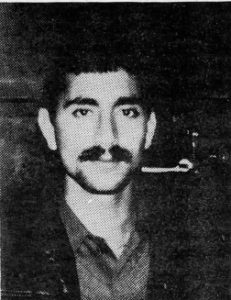
First and last name: Veli CAKMAK
Nom de Guerre: Ferhan
Year of birth: 1960
Place of birth: Dersim
Veli Cakmak joined the Revolutionaries of Kurdistan in 1976. In the Israeli attack on the Castle Arnun in June 1982, he resisted until the last minute and was martyred in combat. Comrade Veli, who demonstrated magnificently the image of the resistance and the proletarian internationalist position of our party, has felt great sadness despite his severe injuries and in the face of death, because he couldn’t use his knowledge, experience and energy for the uprising of the Kurdish people to national liberation; but on the other hand, he was proud of the fact that he strengthened shoulder to shoulder with his comrades the combative unity of our peoples for the just struggle of the Palestinian people.
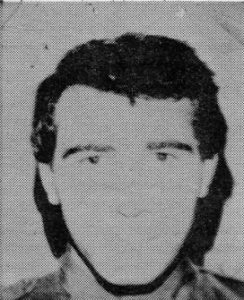
First and last name: Kemal CELIK
Nom de Guerre: Rüstem
‘Year of birth: 1956
Place of birth: Elazig-Keban-Yukari Miselli
In 1976-77, Kemal Celik came in contact with the movement and engaged in propaganda and agitation at a regional level in those years. In 1982 he was martyred in the attack on Lebanon at the Castle Arnun. The life and struggle of comrade Kemal will show us the way.
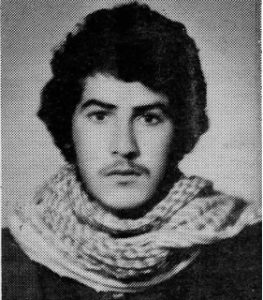
First and last name: Ismet ÖZKAN
Nom de Guerre: Halit
Year of birth: 1.1.1962
Place of birth: Suruc-Aybasti (Müzeybil) köyü
In 1977/78, Ismet Özkan began to sympathize with the idea of national liberation of Kurdistan and established contact with the movement. After the seizure of power of the junta, he was with the cadres abroad. He was staying at a Palestinian camp in Sayda during the Zionist-Israeli attack on Lebanon in June 1982, where he was killed.
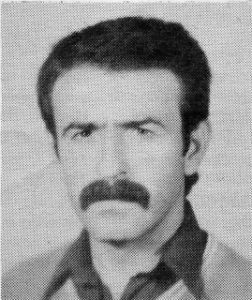
First and last name: Mehmet ATMACA
Nom de Guerre: Halil
Year of birth: 1957
Place of birth: Halfeti-Cibin (Saylakkaya)
Mehmet Atmaca’s relationship with the movement dates back to 1977. During these years he became active in the movement. In the attack of Zionist Israel, he became a martyr; he knew how to raise the militant spirit and the revolutionary solidarity. This comrade, who raised the PKK’s internationalist banner with his blood, is, like the other martyrs, our honor and our leader.
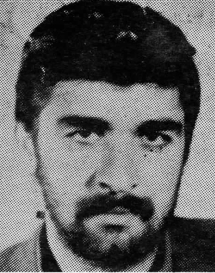
First and last name: Emin YASAR
Nom de Guerre: Xalil, Hasan
Year of birth: 1960
Place of birth: Kozluk
Emin Yasar took on tasks in the regional committees and successfully carried them out. He fell in the Zionist attack; his posture and his fighting spirit have become a role model for us.
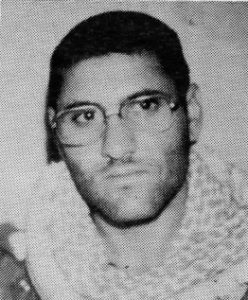
First and last name: Mustafa MARANGOZ
Nom de Guerre: Ferit, Hasan, Mahir
Year of birth: 10.7.1961
Place of birth: Diyarbakir-Cermik
In 1977, Mustafa began to engage in his revolutionary work in a professional way. He was called abroad by the party after the seizure of power of the junta. He professed to the cause of the Palestinian people as to his own. Comrade Mustafa fell at the front in Nebatiye in the fight against Israeli Zionism.
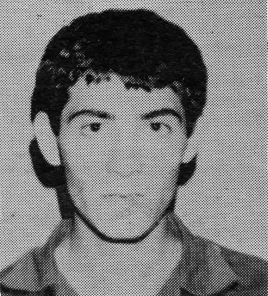
First and last name: Irfan AY
Nom de Guerre: Abdüllatif Musa
Year of birth: Geburtsjahr 1963
Place of birth: Diyarbakir-Bismil- Pinarbasi
When the struggle took hold of the masses in 1979, Irfan Ay decided to become a militant revolutionary and won the trust of his comrades in his activities. Comrade Irfan became a martyr during the attack on Castle Arnun in 1982 and took his place in the ranks of immortal internationalist fighters.
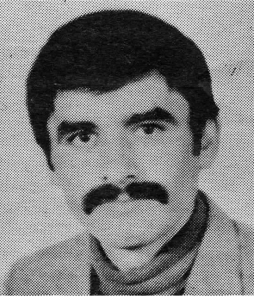
First and last name: Serif ARAS
Nom de Guerre: Orhan Ahmet
Year of birth: 1957
Place of birth: Derik-Hobosi
Serif Aras says, “My revolutionary life began with the PKK.” He took over the most difficult tasks and was relentless against deficiencies and mistakes. Comrade Serif became a martyr during the attack of Zionism with his weapon in his hand. His memory will show us the way.
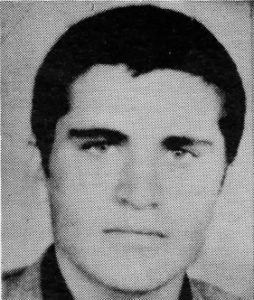
First and last name: Sahabettin KURT
Nom de Guerre: Xalit-Ahmet
Year of birth: 1.1.1962
Place of birth: Nusaybin-Kuskaya Köyü
Although Sahabettin Kurt was sympathetic to the movement in earlier years, he himself described the beginning of his active participation as the beginning of 1981. During his training for the revolutionary uprising, comrade Sahabettin became a martyr under the internationalist banner of his party in the struggle in Sayda.
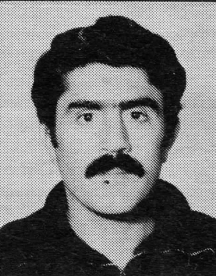
First and last name: Abdullah KUMRAL
Nom de Guerre: Yusuf
Year of birth: 1955
Place of birth: Urfa-Halfeti-Cibin (Saylakkaya)
As the revolutionary-democratic movement of Turkey progressed in 1971, he became acquainted with the revolutionary idea and took a place among the ranks of the revolution. His relations with the movement trace back to the origins of the movement. Comrade Abdullah was martyred during the Israeli attack in 1982 when he was at the training camps of Haspaye.